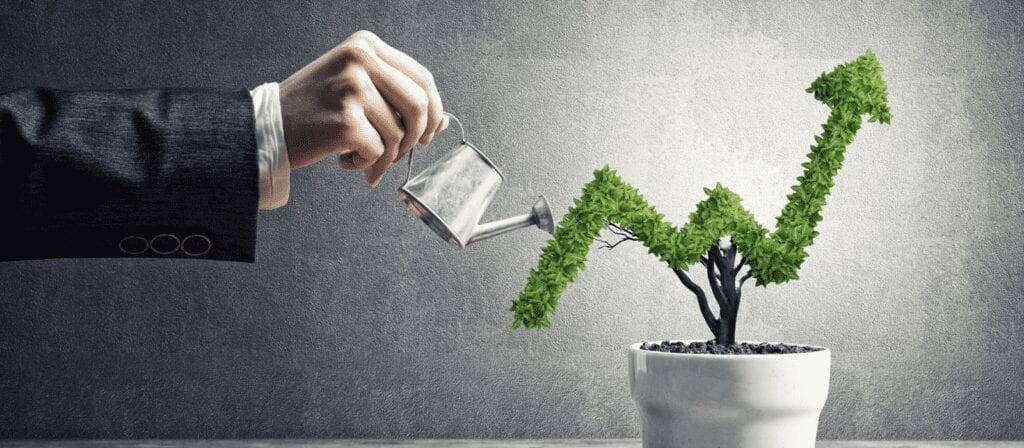We are pleased to share this guest blog from ICMIF Supporting Member organisation Aviva Investors. The article was written for the Aviva investors website and is reproduced here for the benefit of ICMIF members with their permission.
COVID-19 has thrown new light on the interdependencies in human and natural ecosystems, and the vulnerabilities of a closely networked world. Aviva Investors’ responsible investment specialists ask whether this will prove a turning point for environmental, social and governance issues.
The outbreak of a global pandemic raises many profound questions. It is impossible to look at the global health crisis and its knock-on effects, without considering environmental, social and governance (ESG) factors.
For example, if we can drastically change our behaviour to fight a viral pandemic, can we also do so to avert a climate disaster? Alternatively, will we be more focused on simply putting food on the table and getting through the recession? What kind of capitalist model will emerge from this? How will we manage the impacts of the reduction in trade and withdrawal of capital from emerging markets, which threaten a humanitarian catastrophe? What might the disparities in wealth and health outcomes say about how we have chosen to govern ourselves? Will the state play a greater role, particularly in strategic industries; if it chooses to do so, will this create moral hazard? Will we see an increase in global cooperation, or an acceleration of the retreat to self-interest and nationalism that has characterised the last few years?
It is not possible to answer all of these now when the debates are in their infancy, but we will revisit them over the coming months as the picture becomes clearer. In the meantime, we look at whether COVID-19 will accelerate or decelerate progress and focus on ESG’s constituent parts.
Environment: Still the largest elephant in the room
Before COVID-19, the European Insurance and Occupational Pensions Authority (EIOPA) already had ESG in its sights – a way to ‘operationalise’ sustainability.[i] The pandemic has intensified the scrutiny.
“What COVID-19 shows is how a health and environmental issue can become a profound social problem, causing material governance challenges for companies and countries alike,” says Steve Waygood, chief responsible investment officer at Aviva Investors. “It shows how such challenges do not respect national borders. It’s an ESG stress-test for the global economy.”
COVID-19’s origins are fiercely debated; it’s one of a growing cluster of zoonotic diseases (conditions passed from animals to people) that have resulted from humans coming into close contact with other forms of life.
“The relentless incursion of human systems into the remaining natural world is forcing wild animals into ever closer contact with us, and hence us into contact with the viruses and diseases these animals may carry,” explains Rick Stathers, senior ESG analyst and climate specialist at Aviva Investors. “But with only 23% of the world’s land mass remaining as wilderness, and only 5% of animal biomass being wild (95% is humans or domesticated animals), these species increasingly have nowhere left to run.”
“The changes are not likely to stop,” notes Aviva Investors’ ESG analyst Sora Utzinger, as the global population continues to rise and climate change climate forces human settlement in untouched habitats.[ii]
For now, governments are understandably responding to COVID-19 by prioritising social and economic considerations over the environment. But evidence of humanity’s impact is visible in a wide range of planetary indicators, and environmental risks cannot be ignored indefinitely.
“This is a human tragedy, but it’s important to be mindful of the scale of the risks,” says Stathers. “The World Economic Forum’s Risk Outlook flags ‘failure on climate action’ and ‘biodiversity loss’ among the most significant risks to be aware of in the coming years. If the world fails to address these, the impacts could be far larger than those from novel diseases, however devastating they are now.”
Recent estimates from contributors to the Intergovernmental Panel on Climate Change suggest failing to address carbon emissions could cost between $149 and $791 trillion by the turn of the century.[iii] That far exceeds losses expected from COVID-19 (estimated at over $4 trillion by the Asian Development Bank in March 2020).[iv]
“Runaway climate change will have consequences for the whole of civil society,” says Waygood. “There could be extreme physical impacts if climate change is unchecked. More flooding, more fire, more drought and famine – and those will cause all sorts of issues. Human life will continue to exist, but it will be very, very different to what we have enjoyed in recent decades.”
In the first phase of the COVID-19 response, few governments have grasped the opportunity to pivot towards a greener recovery immediately. The initial wave has included support for carbon-intensive sectors; Australia has suspended payments for oil and gas exploration, for example; Canada has offered targeted tax relief for those operating in Alberta’s oilsands, and so on. These measures are designed to offset the financial pressure that has resulted from the “staggering” drop in demand for fossil fuels in lockdown, contributing to an energy crisis.[v] A drop in atmospheric C02 of around eight per cent is forecast by the IEA in 2020 as a result. This is a material fall, much greater than the slump seen in the global financial crisis, but still one that only buys a little more time on the current warming trajectory.
“Governments need to ensure that we build back better from this crisis,” says Waygood. “For example, bailouts of energy intensive sectors such as oil and gas, autos, chemicals and airlines should be conditional on assurances of a commitment to transition towards a lower carbon future.”
However, there are also voices being raised against the environmental agenda, with some arguing the issues are too difficult to grapple with in the midst of a crisis. “Some are using this as justification to lobby for a relaxation or delay of environmental regulation and requirements,” as Paul LaCoursiere, global head of ESG research, points out.
As far as environmental issues are concerned, it is far too early to say whether COVID-19 will prove a watershed moment, although the issues will determine the long-term success and failure of companies. Having fallen down the list of priorities for policymakers and companies for now, the question is whether decision-makers will prioritise sustainable initiatives as economies move into the recovery phase.
Social: Inching towards more inclusive capitalism
When it comes to social considerations, the long-running debate about the purpose of a corporation has been reinvigorated by COVID-19. What are companies for? Are they here solely to generate profit, pay tax then distribute the remainder to shareholders, as Milton Friedman famously suggested?[vi] Or should they pursue loftier goals, serving or even improving society?
During the crisis, collaboration has been the name of the game. In pharmaceuticals, public and private resources have been pooled to try to find vaccine candidates, test them and bring them to market more quickly. Notable corporate announcements include one from GlaxoSmithKline’s Chief Executive Emma Warmsley, among the FTSE 100’s top paid female leads, that the company ‘does not expect to profit’ from a range of collaborations during the pandemic.[vii] The plan is to feed any short-term gains back into research and treatment for some of the world’s poorest.
The approach harks back to the one taken by George W. Merck, founder of one of the oldest pharmaceutical companies in the world, who famously declared medicine should put patients first.[viii] Ultimately, moves like this might result in commercial pharma separating activities of high social but low commercial return from their broader business.
“At the moment, commercial and non-commercial parts are all mixed together in a single entity,” says Mirza Baig, global head of governance at Aviva Investors. “The current aggregated approach means that low returning units act as a drag on group margins and ultimately valuations.”
The debate over the contribution of banks, who can play a vital public service role by keeping liquidity flowing and businesses solvent, is also complex. This time, regulators in the UK and Europe have sought to freeze dividends and share buybacks to shore up capital. (The same is not the case in the US.) While such measures enhance banks’ ability to underpin the financial system, they have widespread implications for pension funds and other long-term income seekers. Pausing the flow (€45 billion of 2019 dividends not-yet-paid from European banks[ix]) will be painful for some.
Before COVID-19, several banks had already launched campaigns and strategies based around corporate purpose and stakeholder capitalism.
“The crisis gives them an opportunity to put this new-found identity to the test,’ says Richard Butters, ESG analyst at Aviva Investors. “This goes beyond supporting customers through the financial squeeze by increasing overdrafts, waiving fees, payment deferrals and so on. Some have taken extra steps to promote financial inclusion after branch closures. Partnering with charities to provide tablets, training those without access to digital banking, and opening dedicated phone lines to support elderly customers are all examples.”
“The crisis has definitely impacted how we evaluate company behaviour,” says Marte Borhaug, Aviva Investors’ Global head of Sustainable Outcomes, who has been engaging with companies on what their social responsibilities might entail.
“There’s been a turning point; investors and consumers have become much more vocal about companies that are perceived to be failing to take their social role seriously.”
In short, one consequence of COVID-19 is that the ‘s’ in ESG is finally getting the attention it deserves.
Governance: Managing through the crisis
In the eye of the storm, governance issues are central. How are companies treating their employees? If airlines carry someone infected with COVID-19, how much risk should cleaning staff reasonably be expected to take?[x] What responsibilities do food processors have for their packers[xi] or fulfilment companies have for their stock pickers?[xii] And what might the reputational and legal damages be for companies that fail to address the risks? Industrial action has already highlighted the pressure points, with US food and healthcare workers leaving their posts or joining ‘safe distance’ picket lines.[xiii]
“The key workers who are out on the front line, effectively keeping the lights on, are predominately fulfilling relatively lower paid roles,” Baig says. “Hopefully, coming out of the COVID crisis, there will be a period of reflection over how we ascribe value to an individual’s economic and social contributions, and in turn how we determine fair compensation.”
A look at the top of the corporate hierarchy shows some marked divergence in the
response reflected in directors’ pay. “In the FTSE 100, for example, the actions range from those that have cancelled all forms of pay (no salary, no bonus, no share awards), to those that have simply delayed salary increases and bonuses, while others felt it appropriate to take no action at all,” adds Baig.
“We are looking at mapping that against companies that have furloughed staff, companies that have cancelled dividends and companies that have sought state aid. When all those dynamics play out, shareholders will start forming a view on who were the responsible players during this crisis, and who were not.”
Significantly, there have been material financial consequences for companies deemed to have fallen short in how they are being managed, including how they address tax issues. For example, the recognition that the Carnival cruise line was paying a low single digit rate in the US precluded it from state aid, forcing it to seek other more costly forms of finance.[xiv]
This wider debate about ‘who is playing by the rules?’ is still evolving; there are websites springing up listing ‘heroes’ and ‘zeros’. Companies overseen by or associated with conspicuously successful people that have sought state aid have received uncomfortable negative attention.[xv] This plays into wider conversations about inequality, how benefits are being distributed and whether society is structured to take everyone’s needs into account.
“We live in a global world where things are connected,” says Borhaug. “Supply chains are connected. The consumers who buy a company’s goods are connected, and they may not live in the same country or city that you operate from. That makes us all vulnerable to some degree – and we need to be mindful of that.”
In the pharmaceutical industry, for instance, just two Asian producers account for most of the world’s raw materials. “China is the world’s largest producer of active pharmaceutical ingredients (APIs), covering around 40 per cent of the market,” says Utzinger. “China and India play disproportionately large roles in API chains across the world.[xvi] With China initially locked down and India facing its own health crisis, companies have faced potential stock-outs. And long-standing quality concerns continue too. When we look across the industry, there are significant differences between companies that have clear contingency plans and monitoring in place and those that don’t.”
What does that mean for anyone looking for corporate winners? Essentially, what COVID-19 has done is highlight the importance of good governance. It has differentiated between those companies that understand material risks and are taking appropriate steps to mitigate them, with those falling well short on both counts.
A watershed moment?
Time will tell whether COVID-19 proves a watershed for ESG. On the evidence of what we have seen so far, the answer would seem to be a qualified ‘yes’. Crisis conditions have boosted the importance placed on ESG metrics and served as a powerful illustration of why a holistic approach to investment risk matters.
“Those that are resistant to change or looking for an excuse have COVID-19 to hide behind,” Baig believes. “But those with a more enlightened view will likely have heightened awareness of the social and financial costs associated with the systemic nature of the ‘e’ and ‘s’ issues that need to be addressed. Of course, there will be competing interests in the near term. But over a longer horizon, we expect this experience to galvanise people’s commitment to dealing with them.”
“Do investors need to keep focused on ESG as they navigate this crisis, particularly as some industries are focused on maintaining solvency rather than sustainability?’” asks LaCoursiere. “In our view, the answer is ‘absolutely’ – because we expect ESG to continue to be a differentiator as society works through the crisis.
“While managing financial stress, there’s an obvious temptation to cut costs – to reduce employee support programmes or abandon commitments on environmental management, for example,” he adds. “But, when we eventually get to the other side of this situation, we think the market will look positively on companies that have not sacrificed responsibility in the face of a crisis.”
The fallout has made it possible to differentiate between companies setting a high bar for themselves, and those simply scraping by. Better-run companies are showing they are mindful about their impact on their environment, on what part they play in society and how to manage themselves effectively – even in the face of the unexpected.
[i] Bridget MacDonnell, ‘EIOPA proposes changes to Solvency II and the IDD on climate change and sustainability for life and non-life insurers’, The Business of Risk. February 11, 2019. https://www.thebusinessofrisk.com/?p=4348#sthash.Co3VhgC8.dpbs
[ii] QuanLiu, Lili Cao and Xing-Quan Zhua, ‘Major emerging and re-emerging zoonoses in China: a matter of global health and socioeconomic development for 1.3 billion’, International Journal of Infectious Diseases, August 2014. https://www.sciencedirect.com/science/article/pii/S1201971214014970
[iii] Yi-Ming Wei et al, ‘Self-preservation strategy for approaching global warming targets in the post-Paris Agreement era’, Nature Communications 11, Article 1642, April 14, 2020. https://www.ncbi.nlm.nih.gov/pmc/articles/PMC7156390/
[iv] Siegfrid Alegado, ‘Global cost of coronavirus may reach $4.1 Trillion, ADB Says’, Bloomberg, April 3, 2020. https://www.bloomberg.com/news/articles/2020-04-03/global-cost-of-coronavirus-could-reach-4-1-trillion-adb-says
[v] ‘Global energy demand to plunge this year as a result of the biggest shock since the Second World War’, International Energy Agency, April 30, 2020. https://www.iea.org/news/global-energy-demand-to-plunge-this-year-as-a-result-of-the-biggest-shock-since-the-second-world-war
[vi] Milton Friedman, ‘The Social Responsibility of Business is to Increase its Profits’, The New York Times Magazine, September 13, 1970. http://umich.edu/~thecore/doc/Friedman.pdf
[vii] Martin Vander Weyer, ‘Will GSK show us what ‘purpose before profit’ really means?’, The Spectator, April 25, 2020. https://www.spectator.co.uk/article/will-gsk-show-us-what-purpose-before-profit-really-means
[viii] George W. Merck, ‘Medicine is for the patients, not for the profits’, December 1, 1950. https://www.merck.com/about/our-people/gw-merck-doc.pdf
[ix] Margot Patrick, ‘Europe’s banks urged to cut dividends to shore up capital’, Wall Street Journal, March 31, 2020. https://www.wsj.com/articles/europes-banks-urged-to-cut-dividends-to-shore-up-capital-11585665244
[x] Angus Whitley, ‘Qantas passengers face virus risk as inadequate cleaning exposed’, Bloomberg, March 5, 2020. https://www.bloomberg.com/news/articles/2020-03-05/qantas-inadequate-cleaning-may-have-exposed-travelers-to-virus
[xi] John Johnson, ‘What the FDA requires for food safety during the COVID-19 pandemic’, JD Supra, April 20, 2020. https://www.jdsupra.com/legalnews/food-beverage-litigation-update-april-19409/
[xii] ‘Coronavirus: Amazon using thermal cameras to detect Covid-19’, BBC, April 20, 2020. https://www.bbc.co.uk/news/technology-52356177
[xiii] Robert Combs, ‘Covid-19 has workers striking. Where are the unions?’, Bloomberg Law, April 14, 2020. https://news.bloomberglaw.com/bloomberg-law-analysis/analysis-covid-19-has-workers-striking-where-are-the-unions
[xiv] Joshua Franklin, ‘Cruise operator Carnival pays high price to get credit investors on board’, Reuters, April 2, 2020. https://www.reuters.com/article/us-health-coronavirus-carnival/cruise-operator-carnival-pays-high-price-to-get-credit-investors-on-board-idUSKBN21K07H
[xv] Rupert Neate, ‘Richard Branson facing backlash over plea for UK bailout of Virgin’, The Guardian, April 12, 2020. https://www.theguardian.com/business/2020/apr/12/richard-branson-facing-backlash-over-plea-for-uk-bailout-of-virgin
[xvi] ‘International Strategy’, Medicines and Healthcare products Regulatory Agency, 2017. https://assets.publishing.service.gov.uk/government/uploads/system/uploads/attachment_data/file/609425/Item_10__2017-OB-05__International_Strategy.pdf






